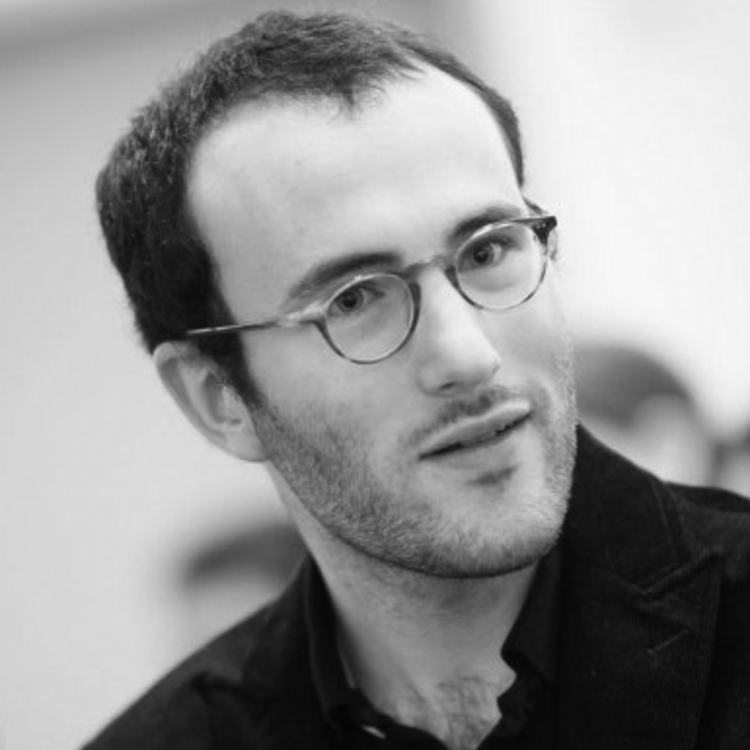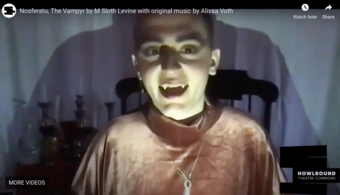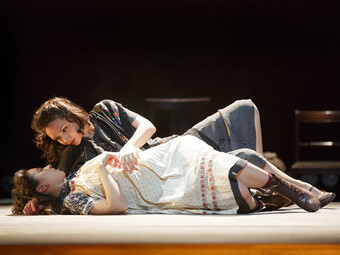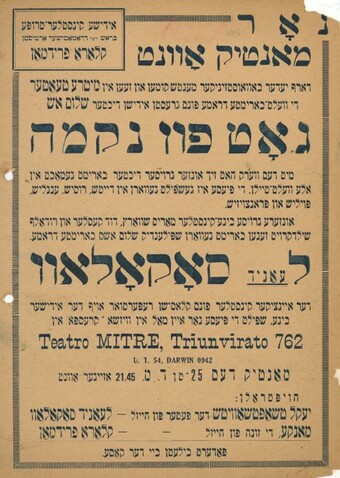Toward a Jewish Theater?
#JewPlay: What is the future of Jewish theater in the United States? In this series, co-curators David Winitsky, Artistic Director of New York’s Jewish Plays Project and Guy Ben-Aharon, Producing Artistic Director of Boston’s Israeli Stage, asked Jewish theater practitioners from major regions of the country what Jewish theater means to them.
Apart from what makes “Jewish-ness,” as a subject, distinct from the “nesses” of other ethnic, cultural and religious groups, I don’t think Jewish theater is any more unique than theater by and about any other group of people. And as the incredible explosion of artists of every ethnic and cultural background continues, we are being offered more and more windows into specific people, cultures, stories, and issues that have rarely, if ever, been dramatized in the American Theater.
So much of what I know about the world and its inhabitants comes from reading, seeing, writing, researching, developing, and/or producing plays. The specific world of a play—its unique setting, characters, and circumstances—provides a window into a dimension of humanity that might otherwise remain hidden or inaccessible or simply unconsidered. Through my twenty-five plus years commissioning, developing, and producing plays with InterAct Theatre Company, as well as my own playwriting, I have had the great fortune of opening up windows into hundreds of fascinating and disparate worlds. Engaging in the act of making, or experiencing an already made play often leaves me feeling as if I have been on a kind of anthropological journey—hopefully a dramatically satisfying one—as I immerse myself in a culture (or, more typically, a single facet or two of a larger culture), and spend time getting to know a small handful of people who are engaged in some kind of conflict within, or because of, that culture.
And so it is with the dozens of Jewish-themed plays that I have read, seen, written, researched, developed, and/or produced. While I am of the fully assimilated, non-practicing variety of American Jew, I have always been drawn to plays with Jewish content; but as is true for my taste and aesthetic with plays about all kinds of people, I tend to be drawn to those that offer unusual, surprising or provocative perspectives. When it comes to plays that explore Jewish identity, culture, religion, and history, I have been most engaged by such works as Karen Hartman’s Goldie, Max, and Milk (which imagines the nexus of Orthodox Judaism, lesbianism and lactation), Deb Margolin’s Imagining Madoff (which interrogates the uncomfortable relationship between Jewish moral and spiritual yearning and financial security), Motti Lerner’s Benedictus (which reveals a sobering and decidedly non-American portrait of dealings among Israeli, Iranian and American political operatives), and Jason Sherman’s Reading Hebron (which illuminates the conundrum of the self-hating Western Jew trying to reconcile the Palestinian-Israeli conflict). Each of these plays examines something incredibly particular about contemporary Jewish identity, as a way of asking larger questions about humanity and responsibility.
Despite the fact that I have never thought of myself as an artist engaged in an exploration of my own background, I have somehow, almost inadvertently authored a trilogy of plays (over twelve years and separated by five other plays) about the search for faith, each of which features an atheist, or at least hard-questioning Jew. In Missing Link (originally produced by InterAct in 2002), Nathan—a Jewish physical anthropologist—and Gloria—a lapsed Catholic social worker—are catapulted into opposing crises of faith when they lose their only daughter to a tragic plane crash (inspired by TWA Flight 800 in 1996). As the investigation into the cause of the plane crash unfolds, and anti-semitism emerges amid assumptions about Arab-led terrorism, Nathan retreats into his hyper-rational, scientific mind seeking a plausible explanation, while Gloria is drawn to the company of fringe followers of Blessed Virgin Mary sightings in her search of spiritual solace.
In Two Jews Walk into a War… (originally produced through a National New Play Network rolling world premiere by Florida Stage, New Jersey Rep, and Playwrights Theatre of New Jersey in 2009), I again found inspiration in a real-life story, this time about the last two Jews living in Afghanistan. These two grizzled adversaries—Ishaq a pious and high-minded man of ideas, Zeblyan a hot-headed, working-class man of action—share a desire to rebuild a Jewish community in Kabul after the city’s lone synagogue was ravaged by the Taliban; they elect to put their mutual hatred aside and create a Torah.”
In The Three Christs of Manhattan (2014) an atheist Jewish psychiatrist, on the first day of her private practice, is visited by three men, each of whom believes he is Jesus Christ: One is the iconic, loving Jesus, complete with white tunic and sandals; Two is the angry, social justice Jesus in jeans and dredlocks; Three is the successful prosperity gospel Jesus and CEO of a Fortune 500 financial services company. In her wisdom, or lack thereof, the psychiatrist brings the three Jesi together for a group therapy session, which quickly unravels into a battle supreme to save her soul (and the whole of humanity).
I will be very interested to see how playwrights will explore the continued evolution of American Jewish identity, faith, culture, and community in a society that is diversifying and co-mingling at such a staggering rate. What are the unexpected points of conflict going forward? How will world events shape attitudes toward and by American Jews? How will Jewish faith and culture fare against the growing forces of American secularism and consumerism, comfort and convenience? What role will Jews play in shaping American politics and policy in the future? How will greater distance from the Holocaust impact Jewish life? Will Israel continue to play an integral role in American foreign policy?
These are the kinds of questions that engage me as a writer and producer who is driven by the intersection of the personal and the political (as opposed to the purely personal; I am not one who believes that the personal is always political and vice versa). There will surely always be plays (including Jewish ones) about families, friends, and lovers; plays about love, loss, coming-of-age, growing old, growing apart, etc. But like so many Jewish theater makers before me—Lillian Hellman, Clifford Odets, Arthur Miller, Joseph Papp, Tony Kushner, etc.—I find myself compelled by broader social questions; by the ongoing, and always changing struggle of individual humanity against the larger forces of society.











Comments
The article is just the start of the conversation—we want to know what you think about this subject, too! HowlRound is a space for knowledge-sharing, and we welcome spirited, thoughtful, and on-topic dialogue. Find our full comments policy here